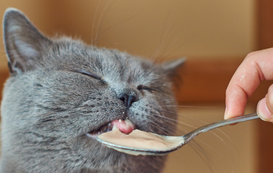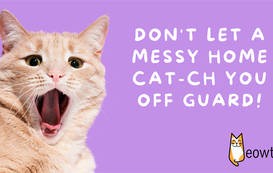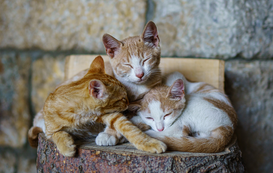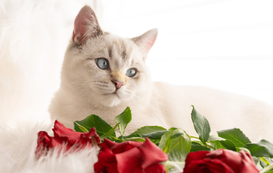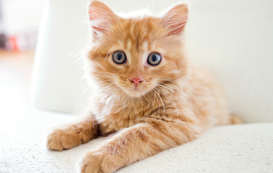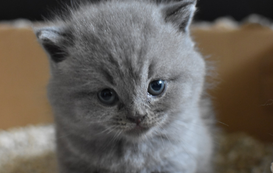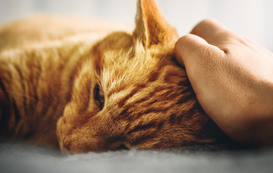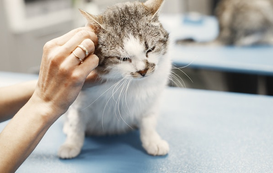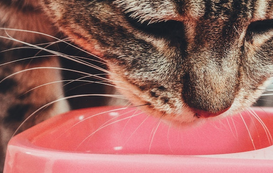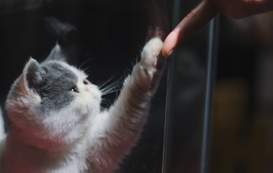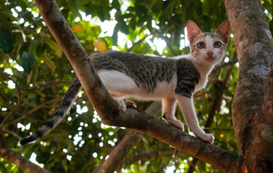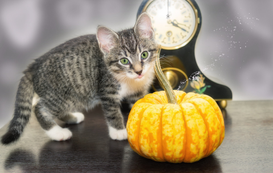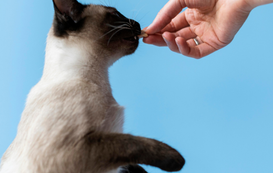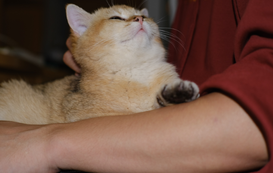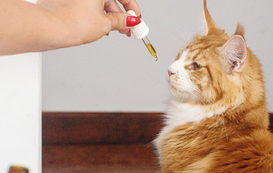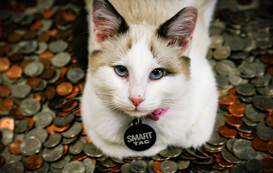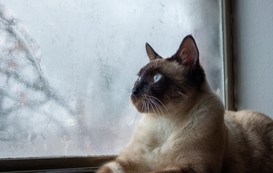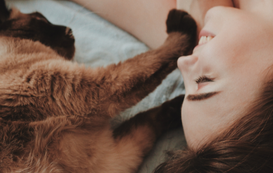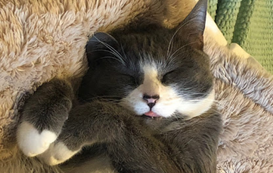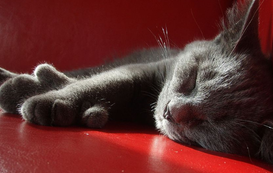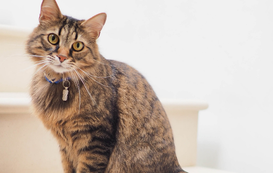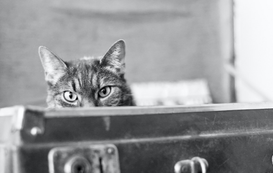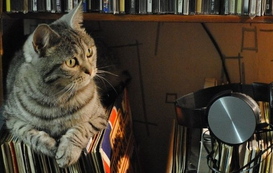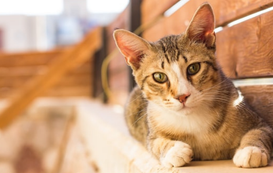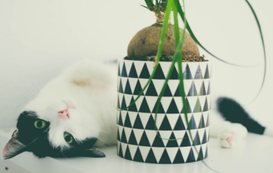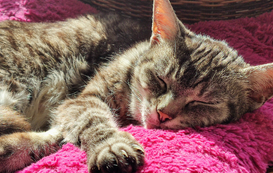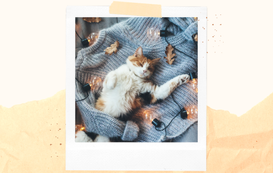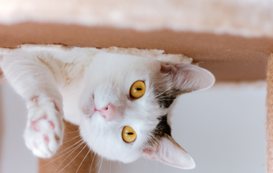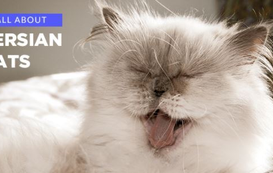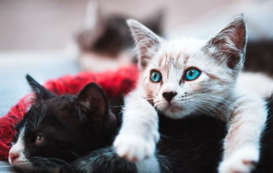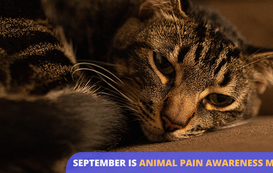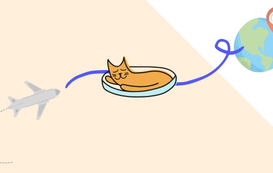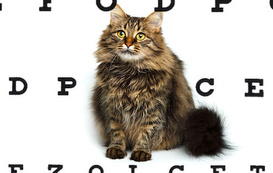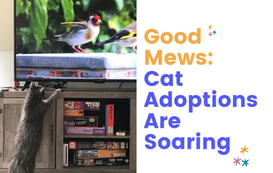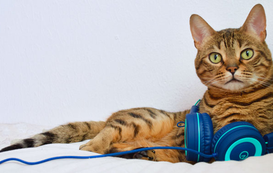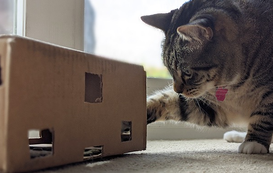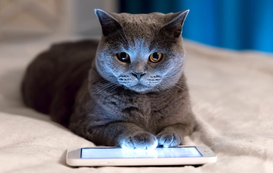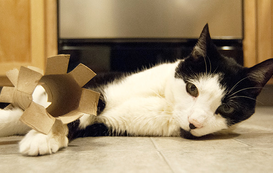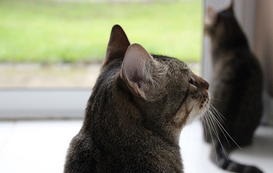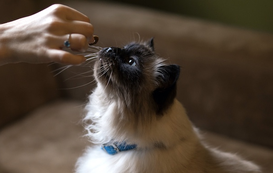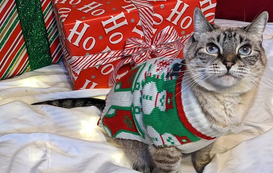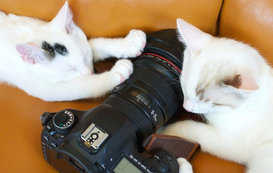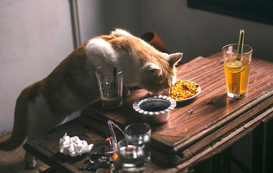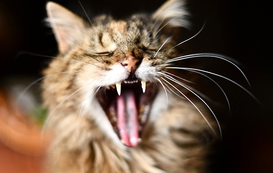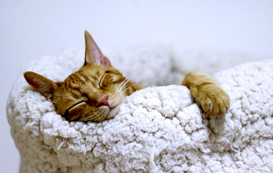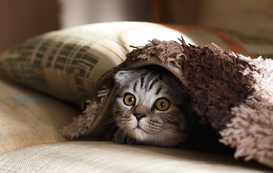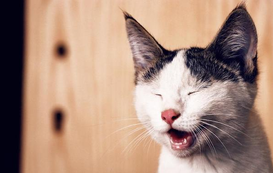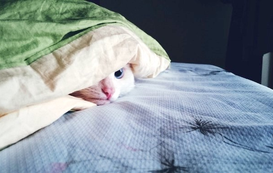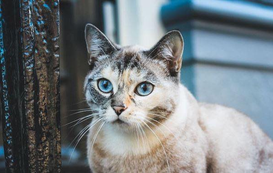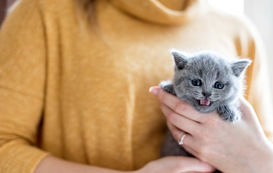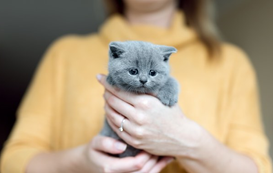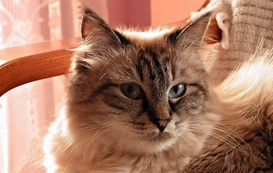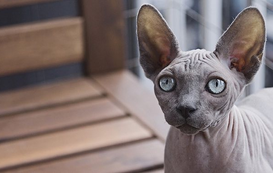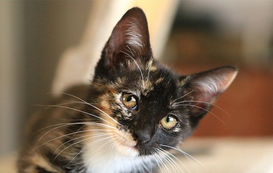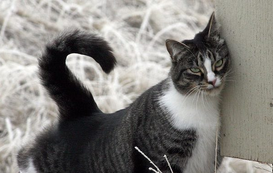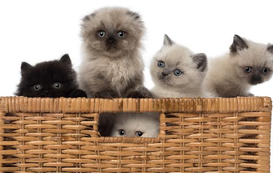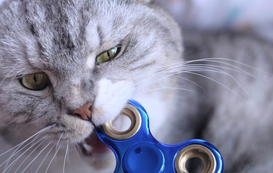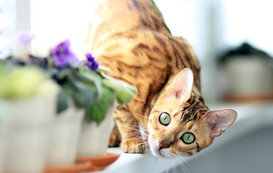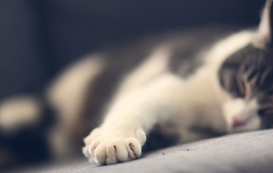Just like humans, our feline friends are also susceptible to viruses and bacteria that cause colds. Learn how to identify the signs and common symptoms of cat colds and take steps to care for your furball while they're feeling under the weather.
Can Cats Catch a Cold?
Yes, cat colds are a real thing! Feline upper respiratory infections, often referred to as "cat flu," are common and can be caused by various viruses and bacteria. Their symptoms are similar to human colds. Your cat may be sneezing, have a runny nose, or watery eyes. Familiarize yourself with all of the signs and symptoms of a cold, especially if you have an older cat, and if you don't see signs of improvement, seek veterinary care.
Commons Signs and Symptoms of a Cat Cold
- Sneezing
- Stuffy nose or telltale sniffles
- Runny eyes
- Lethargy or reduced activity
- Temporary loss of appetite
- Mild cough
- Fever
Caring for Your Cat with a Cold
Provide comfort and care for your cat when it has cold-like symptoms.
1. Isolate your cat. Separate the infected cat from other pets to prevent the spread of the virus.
2. Create a warm, comfortable environment. A cozy bed with an extra blanket for snuggling will do the trick.
3. Increase the humidity. Use a humidifier to add moisture to the air, which can help relieve congestion and make breathing easier for your cat.
4. Encourage hydration and nutrition. Loss of appetite is common. If necessary, add wet food to their diet to increase moisture intake, and give them extra treats.
5. Clean the eyes and nose. Use a damp cloth and saline solution to wipe away discharge. Be gentle to avoid causing further irritation.
When to Take Your Sick Cat to the Vet
Cats often hide signs of illness, so it's important to be on the lookout for changes in their behavior which can indicate severe symptoms such as:
- Difficulty breathing
- Dehydration. Common signs of dehydration include sunken eyes and dry gums. A cold virus can also cause persistent vomiting or diarrhea.
- Poor appetite. If your cat refuses to eat for more than 24 hours, consider contacting the vet.
- Changes in behavior. Heightened stress levels caused by illness can be displayed as excessive hiding, aggression, or vocalization.
- Wounds or cuts. Secondary bacterial infections can affect the immune system and trigger cold-like symptoms.
- Seizures. If your cat experiences seizures, seek immediate veterinary care.
FAQs About Cat Colds
Do Cat Colds Go Away on Their Own?
Upper respiratory infections (URIs) are typically caused by viruses. While some mild cases of cat colds can improve on their own, it's important to monitor your cat closely. Medical intervention may be necessary in certain situations. The most important thing to do is keep your cat comfortable and provide a warm, quiet environment. Additionally, follow your vet's recommendations for any prescribed medications.
How Do Indoor Cats Get Colds?
While staying inside generally reduces a pet's exposure to certain risks, indoor cats are still susceptible to URIs via contact with other cats (such as at the groomer or daycare) or from their humans or other contaminated objects that carry viruses from other cats into the home. Poor ventilation can also contribute to the buildup of airborne particles, increasing the risk of respiratory infections.
To minimize the risk of URIs in indoor cats, practice good hygiene, improve ventilation, and introduce new companion animals carefully. Continue to schedule regular veterinary visits, keep up to date on vaccinations, and maintain a clean living environment.
Can Cats Get Pneumonia?
Yes, cats can develop pneumonia. Pneumonia is an inflammation of the lungs that can result from various causes, including infectious agents like bacteria, viruses, or fungi. The symptoms are more severe than a cold, and include coughing, difficulty breathing, lethargy, loss of appetite, and nasal discharge.
Viral Infections like feline herpesvirus (FHV) or feline calicivirus (FCV) can lead to upper respiratory infections that may progress to pneumonia if they are severe. Cats with chronic respiratory conditions, such as asthma, may be more susceptible to developing pneumonia, especially if their condition is not well-managed.
Cats can also develop pneumonia from aspirating foreign material, such as food or vomit, into the lungs. Fungal organisms, such as those causing cryptococcosis or histoplasmosis, can also lead to fungal pneumonia in cats.
When you need care for your feline friend, count on cat sitter on Meowtel. Sitters on Meowtel are background-checked by a third party.
Whether you require an overnight stay or are looking for an alternative to a boarding facility, Meowtel can help. Book an in-home cat sitter who loves and understands cats. Meowtel helps you find the perfect caregiver for your cat.
Ready to find the purrfect sitter for your feline friend? Find a cat sitter on Meowtel today!



